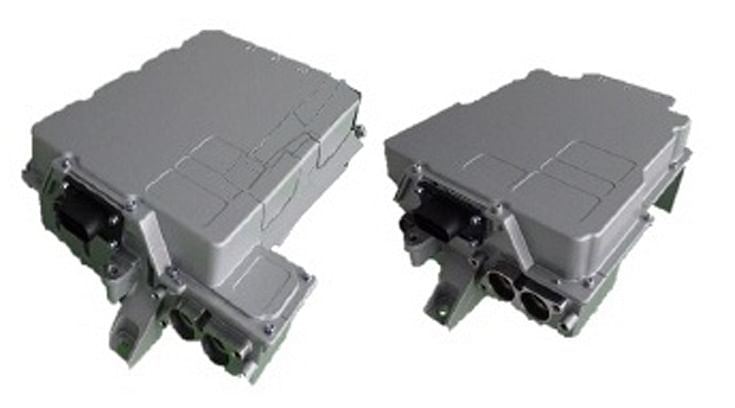Hitachi begins mass production of high-voltage, high-output EV inverter
With its high cooling performance and high voltage, compared to the previous generation of inverters, the new inverter delivers twice the voltage and 2.7 times higher power density.
Hitachi Automotive Systems has announced the start of mass production for its 800-volt compatible high-voltage and high- output electric vehicle (EV) inverter, which increases EV practicality and enables long-distance driving.
According to Hitachi, the product contributes to both comfortable acceleration performance of the vehicle and faster charging times. For this inverter, the mounting technology of the power semiconductor was newly developed to realise an 800-volt system. Due to the product's high cooling performance and high voltage, compared to the previous generation of inverters, the new inverter delivers twice the voltage and 2.7 times higher power density.
Globally, the adoption of EVs has been expanding in line with tightening environmental regulations. The European Union (EU) has made it mandatory to reduce average CO2 emissions from 120.5g/km in 2018 to below 95g/km by 2021. In China, automakers are also accelerating promotion of EVs, plug-in hybrid electric vehicles (PHEVs) and others, as they are required to comply with the New Energy Vehicle (NEV) credit policies that have been implemented starting 2019.
As most EVs are based on a 400-volt system, in order to increase the vehicle's driving range, additional batteries with parallel connection are required. This results in increasing the battery capacity but also the charging time. However, an 800-volt system enables the battery to be charged with the necessary amount of energy over a short period, allowing for fast charging of high capacity batteries.

The EV inverter, seen from the outside.
To make the 800-volt system possible, Hitachi says it undertook a complete review of its inverter insulation structure to develop a compact power module with double-sided cooling and new high voltage insulation heat dissipation mounting technology. Compared to the previous generation of inverters, the solution delivers twice the voltage at 800 volts and 94.3kVA/L, equating to 2.7 times higher power density.
RELATED ARTICLES
Autoliv Plans JV for Advanced Safety Electronics With China’s HSAE
The new joint venture, which is to be located strategically near Shanghai and close to several existing Autoliv sites in...
JLR to Restart Production Over a Month After September Hacking
Manufacturing operations at the Tata Group-owned British luxury car and SUV manufacturer were shut down following a cybe...
BYD UK Sales Jump 880% in September to 11,271 units
Sales record sets the UK apart as the largest international market for BYD outside of China for the first time. The Seal...






 By Autocar Professional Bureau
By Autocar Professional Bureau
 18 Oct 2019
18 Oct 2019
 13695 Views
13695 Views





 Ajit Dalvi
Ajit Dalvi




